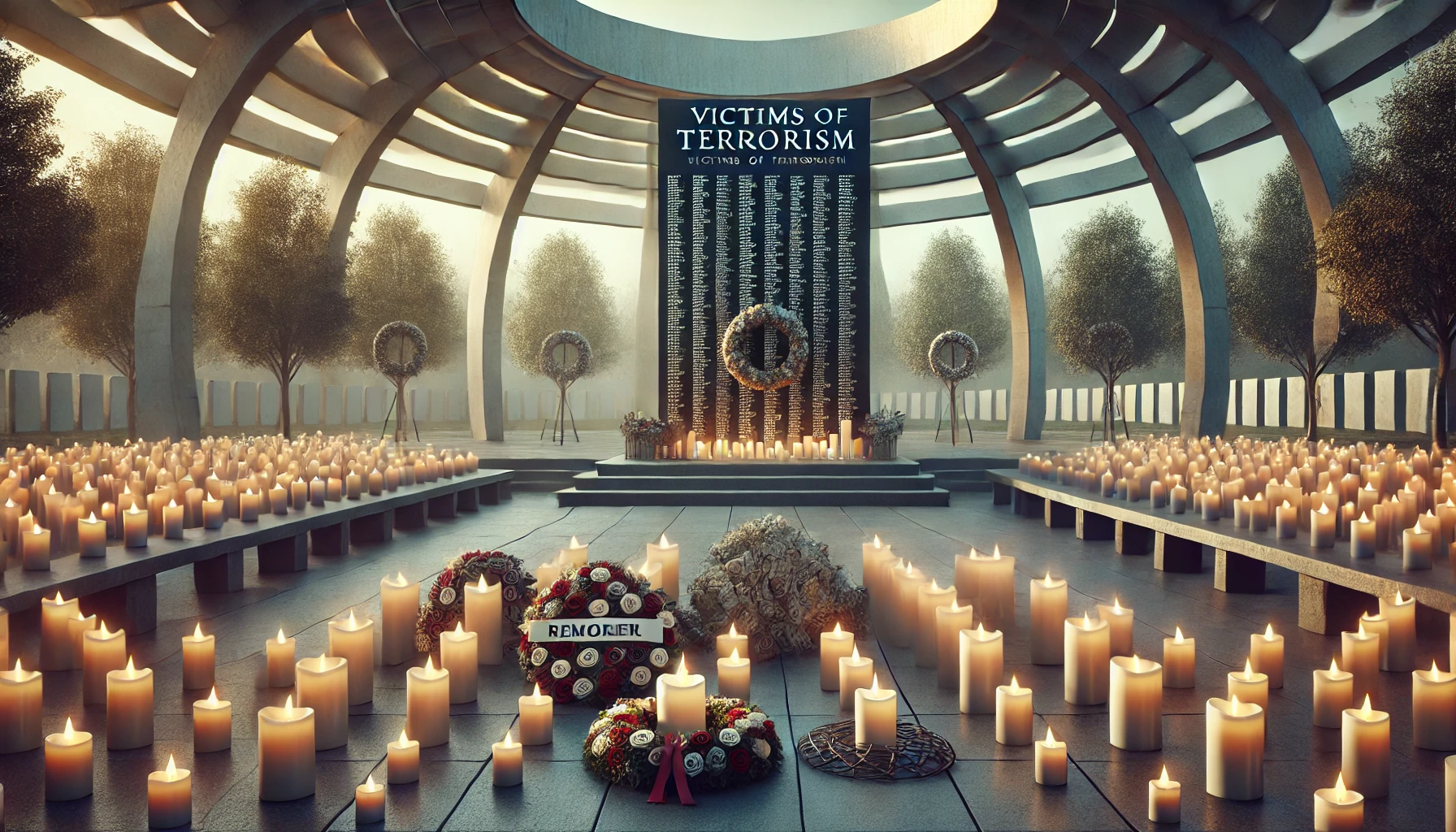
- This event has passed.
International Day of Remembrance and Tribute to the Victims of Terrorism
August 21

The International Day of Remembrance and Tribute to the Victims of Terrorism is observed annually on August 21st. This day serves as a solemn reminder of the devastating impact of terrorism on individuals and communities around the world. It emphasizes the importance of supporting victims and their families, acknowledging their suffering, and ensuring they are not forgotten in the wake of such tragedies.
The observance was established by the United Nations to foster solidarity and offer a collective moment of reflection and support. It provides a platform for stakeholders, including governments, organizations, and individuals, to renew their commitment to preventing acts of terrorism and to highlight the ongoing efforts to assist victims and their families.
Historical Background and Significance
The inception of the International Day of Remembrance and Tribute to the Victims of Terrorism was driven by the increasing recognition of the long-term effects of terrorism on survivors and the bereaved. It was officially adopted by the United Nations General Assembly in 2017, marking a significant step towards global acknowledgment and support for victims of such violence.
The day’s significance stems from its role in highlighting the human cost of terrorism. Each year, events and activities are organized to remember those who have lost their lives or suffered in terrorist attacks, ensuring their stories and experiences are not lost in the broader political discourse about terrorism.
Traditions and Observances
Traditionally, the day is marked by memorial services and vigils held around the world, where names of the victims are often read aloud, and moments of silence are observed. These acts of remembrance play a crucial role in communal healing and offer a sense of solidarity among survivors and the families of victims.
Educational programs and public discussions are also common, aimed at spreading awareness about the impact of terrorism and promoting peace. These initiatives are supported by various NGOs and governmental bodies that strive to counteract terrorism’s aftermath through community support and public policy.
Modern Celebrations
In contemporary observance, the International Day of Remembrance and Tribute to the Victims of Terrorism is not only about remembrance but also about action. Governments and organizations launch campaigns aimed at improving the lives of victims and their families. This includes providing psychological support, legal assistance, and financial aid to help them rebuild their lives.
Social media plays a significant role in modern celebrations, with hashtags and online campaigns spreading awareness and solidarity. Virtual events, webinars, and panels discuss the effects of terrorism and explore ways to support victims globally, making the observance accessible to a wider audience.
Congratulations and Wishes
- “May this day bring comfort to those who suffer and remind us of the strength found in unity and compassion.”
- “Remembering the victims today, may peace and solace find you in your memories and the support around you.”
- “In honor of those we have lost, let us commit to making the world a more peaceful place for all.”
- “Wishing healing and hope to all affected by terrorism, today we stand with you in remembrance and respect.”
- “Let’s light a candle to remember the past and brighten the future with hope and peace.”
- “May the memories of the victims inspire us to build a bridge of understanding and kindness over the chasms of despair.”
- “On this day of remembrance, we reflect on the lives touched by tragedy and the resilient spirit of those who continue to advocate for peace.”
- “Sending thoughts of love and support to all who bear the scars of terrorism, may you find strength in this community of remembrance.”
- “May this day serve as a reminder of the preciousness of peace and the importance of protecting it for future generations.”
- “As we remember the lost and the left behind, let our collective compassion be the light that guides us towards a better tomorrow.”
10 Unusual Facts
- The UN General Assembly designated August 21 as this international day in 2017, emphasizing its importance in the global calendar.
- Victims of terrorism often participate in advocacy roles, becoming key players in promoting peace and conflict resolution.
- Many countries have established specific national days of remembrance at various dates, each reflecting their unique experiences with terrorism.
- Art installations and public artworks are frequently commissioned across the world as enduring tributes to victims of terrorism.
- Education programs aimed at preventing terrorism often incorporate stories and testimonials from victims to enhance the impact.
- Psychological research into the impact of terrorism has influenced how support services for victims are structured globally.
- Some cities have transformed sites of terror attacks into peace parks or memorial gardens as a form of positive reclaiming.
- Virtual reality experiences are being developed to help the wider public understand the profound impact of terrorist acts on individuals and communities.
- Anti-terrorism legislation in many countries now includes provisions specifically aimed at supporting victims’ rights and providing reparations.
- The first observance of this day included a special event at the United Nations headquarters, featuring speakers from around the world who had been directly affected by terrorism.
Frequently Asked Questions
Q: Why was August 21 chosen for this observance? A: August 21 was selected by the United Nations to allow for a period of reflection following the anniversary of the 9/11 attacks, one of the most significant terrorist events in recent history.
Q: How can individuals contribute to supporting victims of terrorism? A: Individuals can contribute by advocating for supportive policies, participating in or donating to victim support organizations, and raising awareness about the impact of terrorism through education and community involvement.
Q: What are some ways communities commemorate this day? A: Communities often hold vigils, create memorial artworks, host educational sessions, and engage in community service to honor victims and raise awareness about terrorism’s impact.
Q: How does remembering the victims help prevent future acts of terrorism? A: Remembering victims humanizes the consequences of terrorism and reinforces the global resolve against violent extremism, fostering a culture of peace and resilience.
Q: Are there international funds or programs specifically aimed at supporting victims of terrorism? A: Yes, several international organizations and governments have established funds and programs that provide direct assistance and support to terrorism victims and their families.
The International Day of Remembrance and Tribute to the Victims of Terrorism serves as an essential reminder of the human cost of violence. By dedicating a day to remember and honor those affected, the global community reaffirms its commitment to combating terrorism in all its forms. It’s a day to reflect on the past tragedies and to look forward to a future where such acts of violence are no more.
This observance underscores the importance of collective action in supporting victims and preventing future acts of terrorism. It calls on everyone, from governments to individuals, to partake in building a more peaceful and compassionate world.
Why This Day Is Important
Recognizing the victims of terrorism goes beyond mere remembrance; it’s about asserting the human rights of every individual affected by terrorism. This day helps ensure that the world does not forget the faces and stories behind the statistics and continues to work towards justice and healing for all.
Author’s Opinion
As we mark this day, it’s crucial to remember that each statistic represents a person whose life was irrevocably changed by terrorism. Supporting victims isn’t just about providing aid; it’s about restoring dignity, offering hope, and affirming that their voices matter in shaping a more just and secure world.




